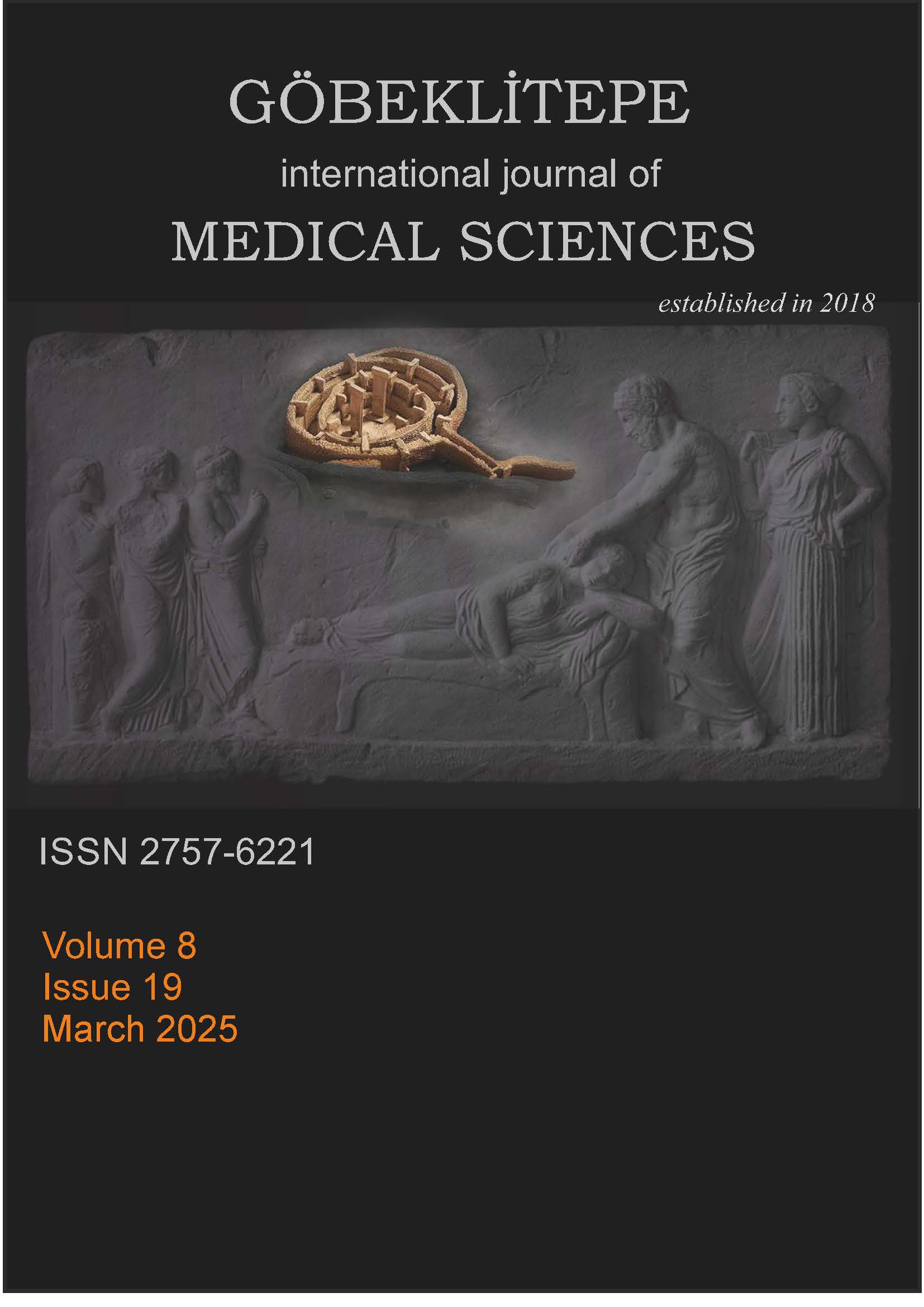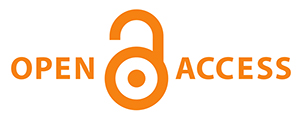COMPARISON OF SOCIAL INTELLIGENCE AND PSYCHOLOGICAL RESILIENCE LEVELS OF NURSES AND EXAMINATION OF THE RELATIONSHIP WITH DIFFERENT VARIABLES
Keywords:
Nursing, Psychological Resilience, Social IntelligenceAbstract
Nurses, who are in constant communication with patients, their families, and other healthcare professionals, are at risk of inadequate psychological resilience and social intelligence. These two concepts can be supported through in-service training. The study was conducted to compare the social intelligence and psychological resilience levels of nurses and to examine their relationship with different variables. Our study was conducted in a descriptive and correlational manner. It was conducted in certain hospitals between March 2020 and October 2020. The Sociodemographic Data Form, Resilience Scale for Adults (RSA) and Tromso Social Intelligence Scale (TSIS) were used to collect data. According to the study results, the total TSIS score average of the participants was found to be 75.58±9.90. The average RSA total score was calculated as 123.62±19.01. A significant positive correlation was found between RSA and its sub-dimensions and TSIS and its sub-dimensions (p<0.05). In this study, it was determined that the psychological resilience and social intelligence levels of the participants were above the moderate level. It has also been shown that there is a relationship between psychological resilience and social intelligence levels. When the data collection process was planned, it was not during the Covid 19 pandemic period. Since the data collection was collected during the Covid 19 pandemic period, it also includes information about the Covid 19 pandemic period. It provides information about the social intelligence and psychological resilience of nurses during the Covid 19 pandemic period.
References
Azañedo, C. M., Sastre, S., Artola, T., Alvarado, J. M., & Jiménez-Blanco, A. (2020). Social Intelligence and Psychological Distress: Subjective and Psychological Well-Being as Mediators. International Journal of Environmental Research and Public Health, 17(21), 7785. https://doi.org/10.3390/ijerph17217785.
Katou, A. A., Budhwar, P. S., & Patel, C. (2021). A trilogy of organizational ambidexterity: Leader’s social intelligence, employee work engagement and environmental changes. Journal of Business Research, 128, 688-700. https://doi.org/10.1016/j.jbusres.2020.01.043
Swartz, M. K. (2017). Social and emotional learning. Journal of Pediatric Health Care, 31(5), 521-522. https://doi.org/10.1016/j.pedhc.2017.06.001
Zautra, E. K., Zautra, A. J., Gallardo, C. E., & Velasco, L. (2015). Can we learn to treat one another better? A test of a social intelligence curriculum. PloS one, 10(6), e0128638. https://doi.org/10.1371/journal.pone.0128638.
Sanwal, T., & Sareen, P. (2023). Higher employee engagement through social intelligence: a perspective of Indian scenario. Employee Responsibilities and Rights Journal, 35(1), 111-126. https://doi.org/10.1007/s10672-022-09404-7.
Özdemir, N., & Adıgüzel, V. (2021). The Relationship Between Social Intelligence, Self-Esteem and Psychological Resilience in Healthcare Workers and Affecting Factors. Journal of Psychiatric Nursing, 12(1). Doi: 10.14744/phd.2020.96658
Çelikkaleli, Ö. (2020). The mediating role of resilience in the direct and indirect relationships between stress and burnout in emerging adults. Journal of Educational Sciences Research, 10(1), 1-21. http://dx.doi.org/10.22521/jesr.2020.101.1
Özçetin, Y. S. Ü., Sarıoğlu, G., & Dursun, S. İ. (2019). Psychological Resilience, Burnout and Psychological Well-Being Levels of Oncology Nurses. Current Approaches in Psychiatry, 11, 147-164. https://doi.org/10.18863/pgy.589202
Cevizci, O., & Müezzin, E. E. (2019). Examination of psychological symptoms and psychological resilience in healthcare workers. Cyprus Turkish Journal of Psychiatry and Psychology, 1(3), 166-172. https://doi.org/10.35365/ctjpp.19.1.21
Lee, K. R., & Kim, J. M. (2016). Effects of emotional labor on burnout in nurses: focusing on the moderating effects of social intelligence and emotional intelligence. Journal of Korean Academy of Nursing Administration, 22(1), 22-32. https://doi.org/10.11111/jkana.2016.22.1.22
Trost, J. E. (1986). Statistically nonrepresentative stratified sampling: A sampling technique for qualitative studies. Qualitative sociology, 9(1), 54-57. https://doi.org/10.1007/BF00988249
Silvera, D., Martinussen, M., & Dahl, T. I. (2001). The Tromsø Social Intelligence Scale, a self‐report measure of social intelligence. Scandinavian journal of psychology, 42(4), 313-319. https://doi.org/10.1111/1467-9450.00242.
Doğan, T., & Çetin, B. (2009). Factor structure, validity and reliability study of the Tromso social intelligence scale Turkish form. Educational Sciences: Theory and Practice, 7(1), 241-268.
Friborg, O., Barlaug, D., Martinussen, M., Rosenvinge, J. H., & Hjemdal, O. (2005). Resilience in relation to personality and intelligence. International journal of methods in psychiatric research, 14(1), 29-42. https://doi.org/10.1002/mpr.15.
Friborg, O., Hjemdal, O., Rosenvinge, J. H., & Martinussen, M. (2003). A new rating scale for adult resilience: what are the central protective resources behind healthy adjustment? International journal of methods in psychiatric research, 12(2), 65-76. https://doi.org/10.1002/mpr.143
Basim, H. N., & Çetin, F. (2011). Reliability and validity study of the psychological resilience scale for adults. Turkish Journal of Psychiatry, 22(2), 104-114. PMID: 21638232.
Won, S. J., Heo, C. U., & Choi, Y. S. (2018). The effects of school life, emotional intelligence, and social intelligence on resilience of nursing university students. Biomedical Research (0970-938X), 29(21). doi: 10.4066/biomedicalresearch.29-18-1049
Savci, C., Akinci, A. C., & Keles, F. (2022). The association of perceived sociability and social intelligence with loneliness in online learning among nursing students. Nurse Education Today, 109, 105226. https://doi.org/10.1016/j.nedt.2021.105226.
Yan, J., Wu, C., Du, Y., He, S., Shang, L., & Lang, H. (2022). Occupational stress and the quality of life of nurses in infectious disease departments in China: The mediating role of psychological resilience. Frontiers in Psychology, 13, 817639.| https://doi.org/10.3389/fpsyg.2022.817639.
Lyu, H., Yao, M., Zhang, D., & Liu, X. (2020). The Relationship Among Organizational Identity, Psychological Resilience and Work Engagement of the First-Line Nurses in the Prevention and Control of COVID-19 Based on Structural Equation Model. Risk Management and Healthcare Policy, 13, 2379. https://doi.org/10.2147/RMHP.S254928.
Maree, J. G. (2020). The psychosocial development theory of Erik Erikson: critical overview. Early Child Development and Care, 1-15. eBook ISBN9781003120216, doi:10.1080/03004430.2020.1845163.
Park, H. I., & Lee, K. (2016). The effects of social intelligence and burnout on turnover intention in nurses: an exploratory study. Journal of Digital convergence, 14(4), 325-336. https://doi.org/10.14400/JDC.2016.14.4.325.
Leng, M., Xiu, H., Yu, P., Feng, J., Wei, Y., Cui, Y., Zhang, M., Zhou, Y., & Wei, H. (2020). Current state and influencing factors of nurse resilience and perceived job-related stressors. The Journal of Continuing Education in Nursing, 51(3), 132-137. https://doi.org/10.3928/00220124-20200216-08
Tabakakis, C., McAllister, M., Bradshaw, J., & To, Q. G. (2019). Psychological resilience in New Zealand registered nurses: The role of workplace characteristics. Journal of nursing management, 27(7), 1351-1358. https://doi.org/10.1111/jonm.12815
Saxena, S., & Jain, R. K. (2013). Social intelligence of undergraduate students in relation to their gender and subject stream. Journal of Research & Method in Education, 1(1), 1-4. PP 01-04, doi:10.9790/7388-0110104.
Ang, S. Y., Uthaman, T., Ayre, T. C., Mordiffi, S. Z., Ang, E., & Lopez, V. (2018). Association between demographics and resilience–a cross‐sectional study among nurses in Singapore. International nursing review, 65(3), 459-466. https://doi.org/10.1111/inr.12441.
Brown, R., Wey, H., & Foland, K. (2018). The relationship among change fatigue, resilience, and job satisfaction of hospital staff nurses. Journal of Nursing Scholarship, 50(3), 306-313. https://doi.org/10.1111/jnu.12373
Mealer, M., Jones, J., & Meek, P. (2017). Factors affecting resilience and development of posttraumatic stress disorder in critical care nurses. American Journal of Critical Care, 26(3), 184-192. https://doi.org/10.4037/ajcc2017798.
Hsieh, H. F., Chen, Y. M., Wang, H. H., Chang, S. C., & Ma, S. C. (2016). Association among components of resilience and workplace violence‐related depression among emergency department nurses in Taiwan: a cross‐sectional study. Journal of clinical nursing, 25(17-18), 2639-2647. https://doi.org/10.1111/jocn.13309
Sukut, O., Sahin‐Bayindir, G., Ayhan‐Balik, C. H., & Albal, E. (2022). Professional quality of life and psychological resilience among psychiatric nurses. Perspectives in psychiatric care, 58(1). doı: 10.1111/ppc.12791.
Jamebozorgi, M. H., Karamoozian, A., Bardsiri, T. I., & Sheikhbardsiri, H. (2022). Nurses burnout, resilience, and its association with socio-demographic factors during COVID-19 pandemic. Frontiers in Psychiatry, 12. https://doi.org/10.3389/fpsyt.2021.803506.
Parveen, N., & Soomro, A. M. (2014). Role of Emotional and Social Intelligence in Various Work Settings: A Review of Current Psychological Literature. Bahria Journal of Professional Psychology, 13(1). Pp 79-114.
Iqbal, M. N., Kanwal, A., Nisar, A., & Mehreen, S. (2023). Social Intelligence and Students’ Academic Performance at Postgraduate Level. Journal of Policy Research (JPR), 9(2), 390-404.
Demiray, T, Uğur, E, & Karabacak, Ü. (2024). Evaluation of Psychological Resilience Status and Adaptation to University Life of Nursing Students Experiencing the Covid-19 Pandemic. Journal of Lifelong Nursing, 5(2), 37-55.
Liu, X., Cheng, F., Jin, Y., Chien, C. W., Chuang, Y. C., & Yang, W. Y. (2024). Psychological resilience factors in intensive care nursing: a hybrid multi-criteria decision-making model. bmc nursing, 23(1), 566. doi: 10.1186/s12912-024-02229-9.
Downloads
Published
Versions
- 2025-07-23 (2)
- 2025-03-28 (1)
How to Cite
Issue
Section
License
Copyright (c) 2025 Göbeklitepe Medical Science Journal

This work is licensed under a Creative Commons Attribution 4.0 International License.




